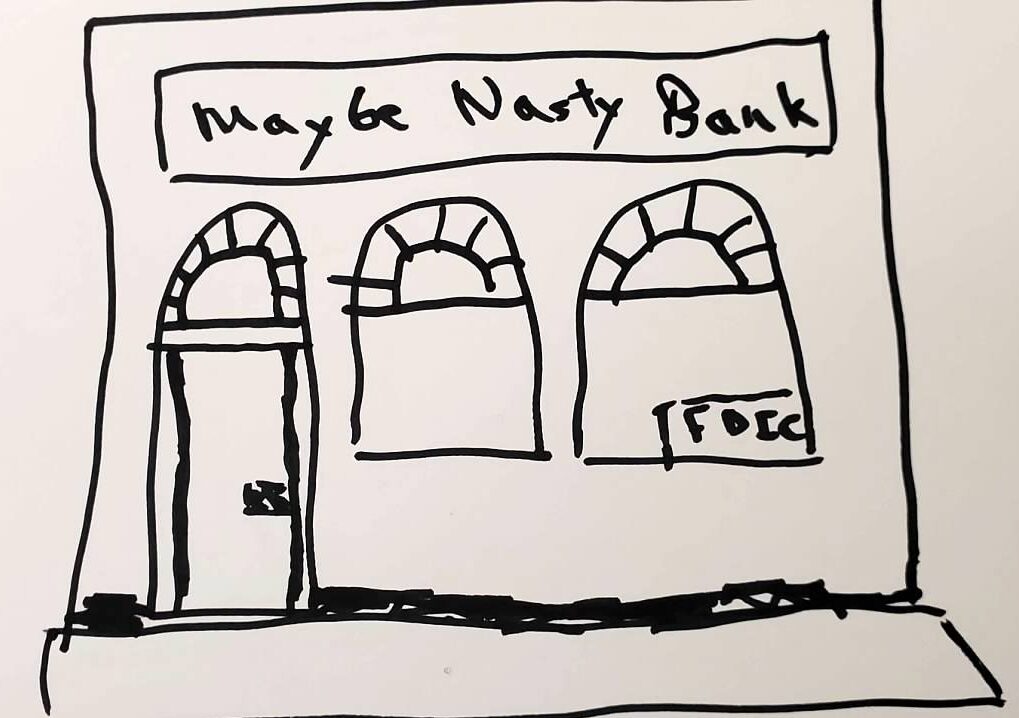A lot of the advertising about attorney fees for bankruptcy is misleading – even tricky. Today I checked on a Google ad and the web page it leads to which says a certain law firm will file a bankruptcy after a payment toward the attorney fee of only $99. I found this to be not exactly accurate.
The web page says that $99 toward the attorney fee, along with the court filing fee and counseling program fees, would be all one would have to pay prior to filing. It was a slick web page, obviously done at considerable expense, where I found the following statement:
“You only have to pay the court filing fee of $335 and the credit report / credit course fees of $65 and an attorney fee of $99 to file.” It also said: “Only $99 Down, No Co-Signer Needed, File Now/Pay over Time, Affordable Payment Plans” in big blue letters.
I wondered how can these people can be doing this. I could never cover my office rent, malpractice insurance, phone and internet bills and office supplies if I didn’t charge a lot more than that. So I went to the bankruptcy court web site and ran a search for actual cases they had filed. This is not free, so I didn’t look very far. All I did was check the last two cases this law firm filed to see what the attorney fee had been. Attorney fees have to be disclosed on the bankruptcy petition. What I found was that for the last two cases they filed, both Chapter 7s, their fee was $990. And the court filings also said they had received all of the $990 before filing the case. That’s lower than what I would usually charge, but it’s a lot more than $99.
Now one thing you should understand about attorney fees in a Chapter 7 bankruptcy is this. If the attorney does not collect his or her fee prior to filing, any part of the fee that is still owing is just another debt in the bankruptcy case. The attorney is just another creditor. The attorney, like all the other creditors, is under an immediate court order requiring that he or she do nothing to try to collect. It is illegal and unethical for the attorney to collect anything from the client once the case is filed. That’s why you may see references to a co-signer in some advertising. The lawyer can still try to collect the fee from a co-signer as long as the co-signer is not his bankruptcy client. This of course puts the bankruptcy lawyer in the position of being a bill collector. I don’t EVER want to be a bill collector.
I went back to the web page thinking it must be referring to Chapter 13 bankruptcy only. When it comes to paying attorney fees after the case is filed, a Chapter 13 bankruptcy is a very different animal from a Chapter 7. If you file a Chapter 13 bankruptcy it is possible to pay part of the attorney fee through the Chapter 13 payment plan. I hit Control F to search the page and typed “13” into the search box. No mention of “13” or “Chapter 13” appears anywhere on the page. The page seems to be talking about Chapter 7. The only filing fee the page mentions is $335, which is the Chapter 7 court filing fee. The court filing fee for a Chapter 13 is slightly lower.
When I look at their web page I can see that it is very slick, and at the bottom is the name of a web development company that designed the page. I can remember a few years back when I hired a person to redesign my page. The person I hired started adding all sorts of new key words and content, which was submitted to me for review. There was a whole lot of it, and it was hard to keep up with what the designer was doing. Is it possible that the web designer wrote up this stuff while the law firm was not paying attention? It could happen. I’m now back to doing all my own web design work. I found that having my web page in the hands of a professional design and marketing person was scary.
So maybe they just have a busy marketing person who they can’t keep up with. Maybe it’s not entirely the law firm’s fault. But I do want to suggest to you that you should be very wary when you see something like this and don’t be taken in by it. If it seems to good to be true, it probably is.
This posting is for general information purposes only and is not legal advice. It does not create an attorney-client relationship. I am a debt relief agency. I help people file for relief under the federal bankruptcy code.
Dave Kelly, Kelly Law Office, Minnetonka, MN 952-544-6356















